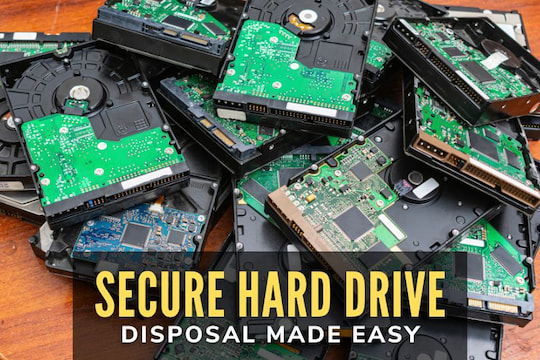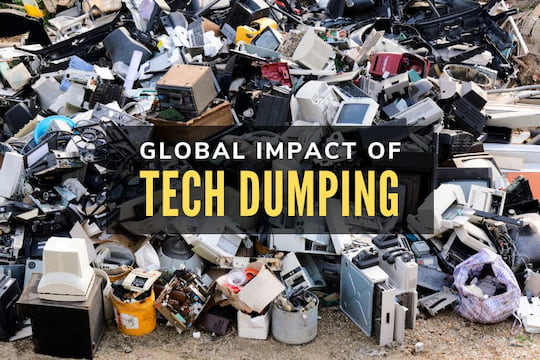As technological advancement accelerates, businesses and governments in the Los Angeles and Orange County metro areas face an increasing challenge in managing electronic waste (e-waste). Proper disposal and recycling of outdated electronics are crucial for environmental sustainability and complying with regulations. Innovative ways to recycle e-waste can transform how we approach this issue, making the process more efficient and effective. This blog explores cutting-edge methods to manage e-waste and their benefits for businesses and IT managers.
Advanced E-Waste Recycling Technologies
Automated E-Waste Sorting

One of the most promising innovations in e-waste recycling is automated sorting systems. These advanced technologies utilize artificial intelligence (AI) and robotics to accurately separate electronic components. Automated sorting can handle large volumes of e-waste quickly and with high precision, improving recovery rates for valuable materials such as gold, silver, and copper.
Chemical Recycling Techniques
Chemical recycling is another innovative way to recycle e-waste. This method involves using chemical processes to break down electronic components into their base elements, which can then be reused to manufacture new products. For example, hydrometallurgical techniques can extract precious metals from circuit boards more efficiently than traditional methods. This approach reduces waste and minimizes the environmental impact of mining for raw materials.
Sustainable E-Waste Management Practices
Eco-Friendly Recycling Centers

Establishing eco-friendly recycling centers is crucial for promoting sustainable e-waste management. These centers are designed to minimize the environmental footprint of recycling operations. They use energy-efficient machinery, implement water recycling systems, and ensure that harmful substances are correctly handled and disposed of. By working with such centers, businesses can contribute to a greener future while ensuring responsible e-waste disposal.
E-Waste Take-Back Programs
Implementing e-waste take-back programs is another effective strategy for managing electronic waste. These programs encourage businesses and consumers to return their old electronics to designated collection points. Many manufacturers and retailers offer take-back schemes as part of their corporate social responsibility initiatives. Such programs can reduce the volume of e-waste in landfills and ensure that electronic components are recycled responsibly.
Compliance and Best Practices
Adhering to E-Waste Regulations
Compliance with e-waste regulations is essential for businesses and governments to avoid legal repercussions and ensure that recycling practices are environmentally sound. Regulations such as the California Electronic Waste Recycling Act require proper disposal and recycling of electronics. Staying informed about these regulations and implementing best practices can help organizations manage their e-waste effectively.
Partnering with Certified Recyclers

Partnering with certified e-waste recyclers is key to implementing innovative recycling methods. Certified recyclers adhere to strict standards and protocols for handling and processing electronic waste. They are equipped with the latest technologies and techniques to manage e-waste responsibly. Businesses and IT managers should ensure their recycling partners are certified and follow industry best practices.
Embracing Innovative E-Waste Solutions
Incorporating innovative ways to recycle e-waste can significantly enhance your organization’s sustainability efforts and compliance with environmental regulations. By leveraging advanced sorting technologies, chemical recycling techniques, and sustainable management practices, businesses and governments can effectively address the challenges of e-waste disposal. To further strengthen your e-waste management strategy, consider implementing data security management best practices to safeguard sensitive information during the recycling process.




















